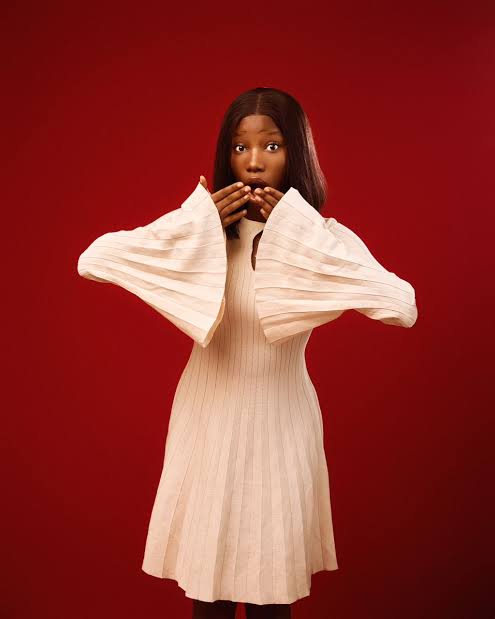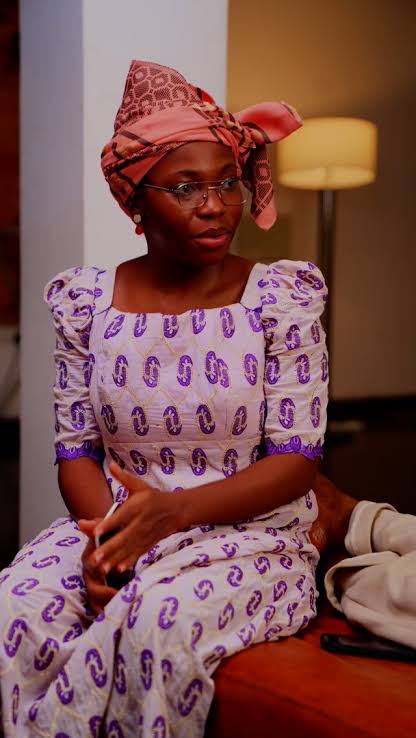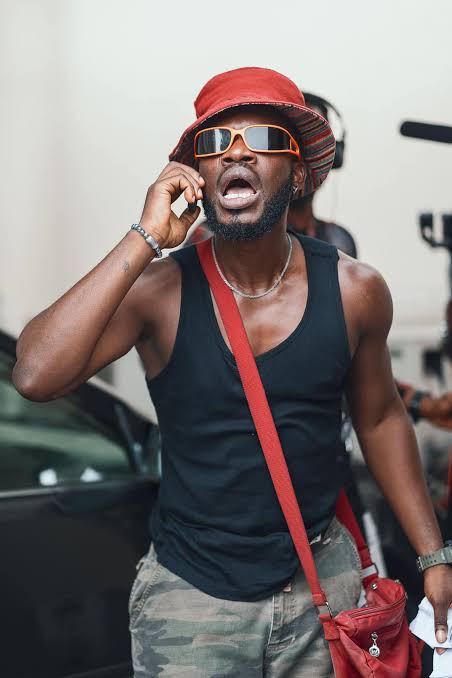If you’re on Instagram, TikTok or YouTube, you’ve probably noticed that many Nigerian skit-makers, from Broda Shaggi to Taaooma to Sabinus, proudly introduces themselves as actors. Not just “comedian” or “content creator.” Even when they’re doing 30-second clips of slaps, falls and exaggerated Yoruba mother, the title “actor” is front and center.
At first, it feels funny. One might even think, but “he’s just a skit maker. Why is he forming Nollywood?”. But when you look deeper, you realize there’s a reason almost every skitmaker is embracing the “actor” tag. And truth be told, many of them have actually earned it.
In this piece, we’ll look at how Nigerian skitmakers moved from 60-second comedy clips to full-blown Nollywood and Netflix roles, why producers are chasing them, what critics are saying, and why this “actor” title is now a survival strategy in the entertainment industry.
Skit-maker vs. Actor: Where’s the Line?
First, let’s define things clearly.
• A skit-maker is someone who creates short, usually funny videos online. They often write, shoot, act and edit everything themselves. They’re one-man (or woman) production companies, dropping content multiple times a week to keep followers entertained.
• An actor, in the traditional sense, is someone who performs in film, TV, stage plays or other scripted projects. Acting often implies longer roles, deeper character work, and sometimes formal training.
Now here’s the twist, in this day Nigeria in 2025, those two worlds are no longer separate. Skitmakers are now getting Nollywood roles, winning acting awards, and being credited in films. At this point, a skit-maker calling himself an “actor” is not just packaging, it’s accurate.
From Skits to Screens: The Evidence
Let’s look at some examples of skitmakers who are now full-blown actors:

• Broda Shaggi (Samuel Perry): He started out doing Instagram skits as that loud, funny, street-wise character. Today, he has featured in Nollywood films, bagged roles in big productions and even won Best Actor in a Comedy at the Africa Magic Viewers Choice Awards (AMVCA). He’s not shy about it. Broda Shaggi calls himself an actor and performer, and he’s right.

• Mr Macaroni (Debo Adebayo): Known for his “Ooin, you’re doing well” sugar daddy character, Macaroni has appeared in feature films and stage productions. Beyond that, he uses his platform for activism. That mix of performance, storytelling and public leadership is classic “actor” territory.

• Mark Angel & Emmanuella: Their comedy skits on YouTube were among the first Nigerian content to go truly viral worldwide. Emmanuella has gone on to appear in films and international productions. She started as a skit child star, but today, she’s properly introduced as an actress.

• Taaooma (Maryam Apaokagi): Famous for playing multiple family characters in one skit, ranging from the angry Yoruba mum, the dramatic daughter, the clueless dad and more. She’s already been courted for Nollywood roles, and her ability to switch between characters makes her a natural actor.

• Sabinus or Mr Funny (Chukwuemeka Emmanuel): From clumsy falls to his “Something Hooge!” catchphrase, Sabinus has built one of the most recognisable comedy brands online. But he’s also moving into Nollywood projects like Dead Serious (2024).

• Lasisi Elenu: With his signature filter-rant skits, Lasisi blew up on Instagram. He’s since crossed into mainstream acting, showing up in Nollywood comedies and dramas like The Razz Guy (2021).
And these are just the popular ones. Every month, new skit-makers are making the jump from “Insta comedy” to “movie credit.”
Why Are Skitmakers Now Calling Themselves Actors?
Wondering why every skit maker is embracing that title, here are a few reasons:
1. They’re Actually Acting
If you think about it, skits require performance. These guys are not just cracking jokes. They’re writing scripts, embodying characters, using costumes, working with camera angles, and delivering lines with timing. That’s acting. It might be short-form and exaggerated, but it’s still performance craft.
2. Nollywood Is Hiring Them
Producers love skitmakers because they bring built-in audiences. Just as Broda Shaggi has 12 million followers, casting him in a movie guarantees hype. It’s free marketing. That’s why we see more and more skit stars in Nollywood projects.
3. Awards Have Validated Them
When Broda Shaggi wins an AMVCA as “Best Actor in a Comedy,” that’s the industry officially saying: this guy is an actor.Once awards start recognising them, the label stops being packaging, it becomes profession.
4. Money and Career Growth
Skit revenue can be shaky. Instagram doesn’t pay directly, and YouTube earnings can fluctuate. By taking on acting gigs, endorsements, and film roles, skitmakers diversify their income. Calling themselves actors positions them for more opportunities.
5. Respect and Legitimacy
To be honest in Nigeria, being called “just a skitmaker” can sound unserious. But once you call yourself an “actor,” you’re taken more seriously.
What Skills Skitmakers Bring to Acting
A lot of people think skitmakers don’t have range. But if you look closely, they’re sharpening acting skills every day. Here are a few ways:
• Comic timing: They know when to pause, when to exaggerate, when to drop the punchline.
• Character work: Many play 3–4 characters in one video, switching accents, costumes and body language.
• Camera awareness: They understand framing, close-ups and editing because they shoot themselves.
• Improvisation: Skitmakers are masters of freestyling, something directors actually value on set.
Of course, there are gaps. Acting in a 2-hour drama requires more depth than a 30-second skit. Stagecraft, voice training and emotional range are areas some skitmakers still need to develop. But the raw material is there.
Nollywood’s Mixed Feelings
It seems not everyone in Nollywood is excited about this trend.
• Some producers are pragmatic: They know casting a skitmaker sells tickets, so they’re fine with it.
• Some traditional actors feel threatened: They’ve trained for years, attended theatre schools, struggled through auditions, then a skit guy with 2 million followers lands the role. Understandably, they feel the craft is being watered down.
• Some audiences also complain: They say some skitmakers can’t sustain long roles and end up playing the same Instagram character in every film.
The Risks for Skitmakers
It’s not all rosy. Skitmakers who call themselves actors also face challenges:
• Typecasting: If all they ever play is their Instagram persona, people may never take them seriously in other roles.
• Quality vs. Quantity: Skitmakers churn out content for virality. Film acting requires slower, more deliberate work and that transition can be tough.
• Criticism: Some get dragged for “spoiling Nollywood” or not having proper training.
But these are growing pains. Over time, the ones with true talent adapt and thrive.
So, Are Skitmakers Really Actors?
The honest answer is some are, some aren’t.
If a skit maker has moved from Instagram to actual Nollywood sets, won awards, and carried roles beyond their skit persona then they should be qualified to be called actor. People like Broda Shaggi, Mr Macaroni, Sabinus, Taaooma and Lasisi Elenu have all crossed that bridge.
For those only doing Instagram skits without ever stepping into a film or stage production, calling themselves “actors” might just be aspirational. There is nothing wrong with dreaming big, but the proof is in the work.
Conclusion
Still wondering why every skitmaker now call themselves an “actor”?, it’s because the line between “skit” and “screen” is gone. The industry is rewarding them, audiences are watching them, and their craft falls under acting.
At the end of the day, whether it’s a 60-second clip on Instagram or a 2-hour Netflix movie, if someone is embodying a character and making it believable, that’s acting.














